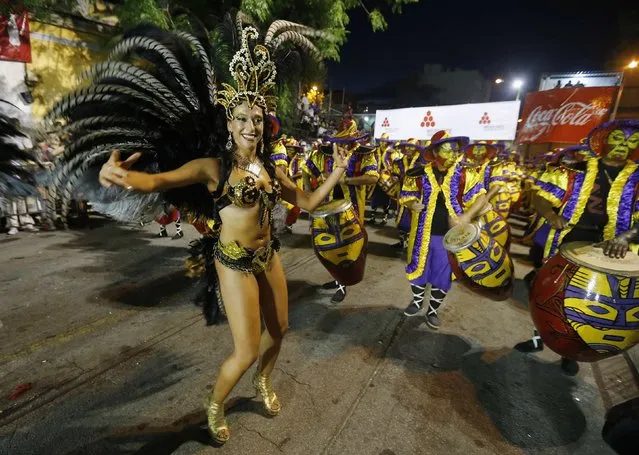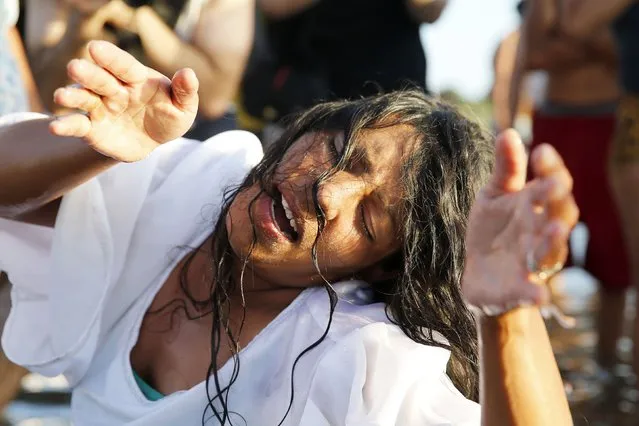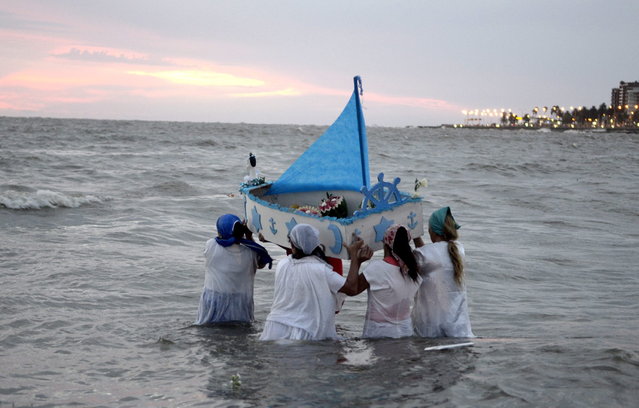
Laura Paipo (L), first blind principal in Uruguay participates in a street race with her sighted guide and friend Amparo Bauter in Montevideo, October 4, 2015. Paipo, 55, who took office on August 10, 2015 became the first blind principal of a special school which specializes in the education of visually impaired students. (Photo by Andres Stapff/Reuters)
08 Oct 2015 08:00:00,post received
0 comments





